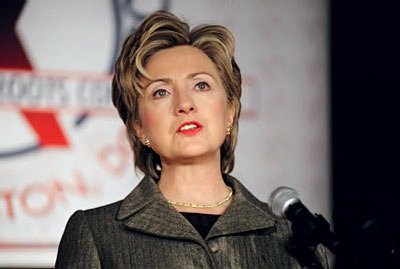
Clark Stoeckly‘s Wikileaks Truck on Flickr, Twitter
This week WikiLeaks published thousands more US diplomatic cables as part of its Cablegate operation. Among many other items, Cablegate has confirmed or revealed the following:
-
Referring to the United States’ secret air strikes in Yemen, Yemen’s president promised US general David Petraeus that “We’ll continue saying the bombs are ours, not yours.” (Original Cable, Salon, BBC.)
-
Though Canada publicly claimed opposition to the Iraq war “for domestic political reasons and out of a deep-seated Canadian commitment to multilateralism,” it secretly told the United States it was “prepared to be as helpful as possible in the military margins,” using Canadian naval and air forces “discreetly” on behalf of the US. (Original Cable, CBC News.)
-
The United States ordered American diplomats to secretly and illegally collect top United Nations officials and others’ credit card numbers, biometric data (fingerprints, iris scans, DNA), passwords, and more. (Original Cable, NYT, Guardian.)
-
In 2009 U.S. Senator John McCain promised Libyan dictator Muammar Qadhafi some American military hardware. (Original Cable, Politico.)
-
Texas security contractor DynCorp pimped little boys to be raped by Afghan policemen at a DynCorp-organized party. (Original Cable, Houston Press, Guardian.)
WikiLeaks initiated a crowdsourcing effort, #wlfind on Twitter, ensuring its latest cable releases would be looked through. Inspired by Furry Girl (Twitter), who put together a post about the latest cables in her area of expertise (sex work), I decided to do something similar for literary topics. If you’re eager to dig through some cables yourself, try this cablegate search engine, and then share your findings online.
(Also! Watch Glenn Greenwald defend Wikileaks and Julian Assange on CNN with this embed.)
I restricted my work to this most recent batch of cables. Here are the search results, and the total number of hits when I first searched, for: literature (665); literary (334); … wow! This is going to take more than one post.
Reading the below, one should bear in mind Evgeny Morozov‘s astute critique of Internet-centrism, a lazy perspective that ignores the importance of local cultures when interpreting material and instead focuses faith on technology. I’m not at all an expert on foreign countries, etc. I can only fish out cables with some literary significance in the hope others might benefit from them.
-
In April 2006, a few months after gun-firing Chinese police in Dongzhou subdued villagers protesting land confiscations (WaPo), the American consulate in Guangzhou invoked a metaphor of Lu Xun‘s (“China’s most prominent modern author”): the Chinese sense, in the area, of rapid economic growth is that it “eats people.” From the cable (my link):
in his “Diary of a Madman” short story […] the supposedly mentally deranged narrator has looked at the whole of Chinese history and found its grandeur and power to be founded on the eating of people
The cable claims
there is a conscious attempt led in part by Guangzhou’s most progressive and highly influential magazine, the “Nanfengchuang” (the “South Wind Window”), to revive the spirit of the New Culture Movement of the 1920s of which Lu was a key figure
The cable goes on to advocate for increased injections of humanities programs to teach core American democratic values. These, the cable argues, will make rapid economic growth in the area more humane. After all, the cable says,
there is a very large audience for American literature and thought. American literature specialist Ernesto Suarez, our Fulbright Scholar at Guangzhou’s Zhongshan University, is in demand not only at Zhongshan but also at other institutions every weekend throughout China. Recently, the Shantou University English Language Department approached the Consulate about strengthening the American literature component of its program in line with the desire of students to learn not merely the language but also the values of the American people speaking that language.
The Cold War-style argument that humanities talks and courses (apparently) alone can sufficiently soften the steamroll of global economics makes one worry (especially in light of other cables).
-
A 2007 cable from the Beijing Embassy summarizes a Chinese Ministry of Foreign Affairs press conference that included China’s suggestion that the US State Department study up on its Confucius.
Spokesperson Qin Gang said at the March 8 regular press briefing that the Human Rights Record of the United States in 2006 issued today by China’s State Council Information Office serves as “a mirror for United States to view its own human rights condition” and “understand why it has no right to use double standards in criticizing other countries.” Qin continued, saying the MFA would give the State Department copies of the “Four Books and Five Classics” of Chinese literature as a guide to good governance. Asked if the report constituted a double standard on China’s part by interfering in the domestic affairs of the United States, Qin referred the reporter to his previous statement.
The Confucian work “Four Books and Five Classics” praises feudal values.
-
A 2008 cable from Taiwan noted growth in the market for simplified-character Chinese books as government restrictions on the products loosened and more translations of foreign books into Chinese were imported from mainland China.
A survey done by local book dealers in 2006 showed that 50 percent of simplified-character Chinese books sold in Taiwan are on literature, history, and philosophy; 10 percent on social science, law, politics, and the military; 10 percent on Chinese medicine and art; 10 percent on education, finance and engineering; with the remainder on tourism and other topics. As for the consumers, Chu Fu-ming, head of the Eslite flagship bookstore’s simplified-character Chinese book section, told AIT, “those who buy simplified-character Chinese books are mostly intellectuals and academics. Only 20 percent of the buyers are in their twenties, while 40 percent are in their thirties and forties, and the remaining 40 percent are over 50 years old. Older people are especially noticeable because they come in the mornings and spend a long time poring carefully over selections,” Wu observed, with “history books being the most popular.”
The cable worries about simplified-character textbooks supplanting US textbooks more and more, since Chinese college professors were finding the former less expensive and easier to assign.
-
In the Chinese city of Zhenjiang, readers of Nobel Prize-winning American novelist Pearl Buck (Mike Wallace interview; Nobel write-up), who spent much of her time in China, worried, according to a 2008 cable, that Buck wasn’t getting enough attention in the United States.
Comment: Zhenjiang’s fervor for its long-ago American “daughter” points to possibilities for the upcoming celebrations of the 30th anniversary of U.S.-China relations.
-
A 2003 cable cited “the latest Human Development Report on the Arab states” as noting
The economic, political, artistic, and literary creativity of the Arab states are being stifled by the exclusion of women, among other factors. As an example, the report notes that Turkey alone published more works of creative literature over the past year than the entire Arab world combined.
Female Turkish novelist Elif Shafak spoke at a 2010 TED conference on the ability of fiction to overcome identity politics.
-
A 2003 cable said although “European public opinion may be skeptical about the politics of GOT joining the European Union, […] civil society has shown that sharing space with Turkey in the
cultural realm is as natural as can be.” The cable cited the European popularity of Istanbul-born novelist Orhan Pamuk as evidence of Turkey’s “de facto integration into European cultural life.”His recent novel “My Name is Red” won the International IMPAC Dublin Literary Award in 2003; this award was the latest in a series of European honors dating back to his 1991 Prix de la Decouverte Europeenne for the French translation of his second novel, “Sessiz_Ev” (“The Quiet House”).
-
With a 2005 cable, the American embassy in Tel Aviv took note of an editorial referencing Egyptian playwright Ali Salem:
“We have already seen that both Israel and Egypt generally obey when there is an American scolding…. Why not initiate, for example, the award of an honorary doctorate by an American university to Ali Salem for his contribution to peace between the peoples?”
The original op-ed can be found here.
-
According to a 2006 cable, staff from the United Nations Educational, Scientific and Cultural Organization Director-General’s office “held misperceptions” about the World Digital Library, “a project to put rare and remote items on the web.” The staff worried over Google’s involvement, saying it troubled European nations, and that the countries might be more receptive to a UNESCO label.
Thus far I’ve come away with the impression that the United States strongly believes spreading American culture is an effective way to spread its core democratic values, but other countries often see this as hypocritical given the States’ frequent disregard of those values. If you’re interested in reading more about that, I recommend Evgeny Morozov’s book The Net Delusion. Another observation: writers and their work do make more of an impact in international politics than you might suspect.
Searching Wikileaks Cables for Literary Topics, First of Many by Douglas Lucas is licensed under a Creative Commons Attribution-NonCommercial-ShareAlike 3.0 Unported License. Based on a work at www.douglaslucas.com. Permissions beyond the scope of this license may be available at www.douglaslucas.com.



 Twitter:
Twitter:
Join the conversation